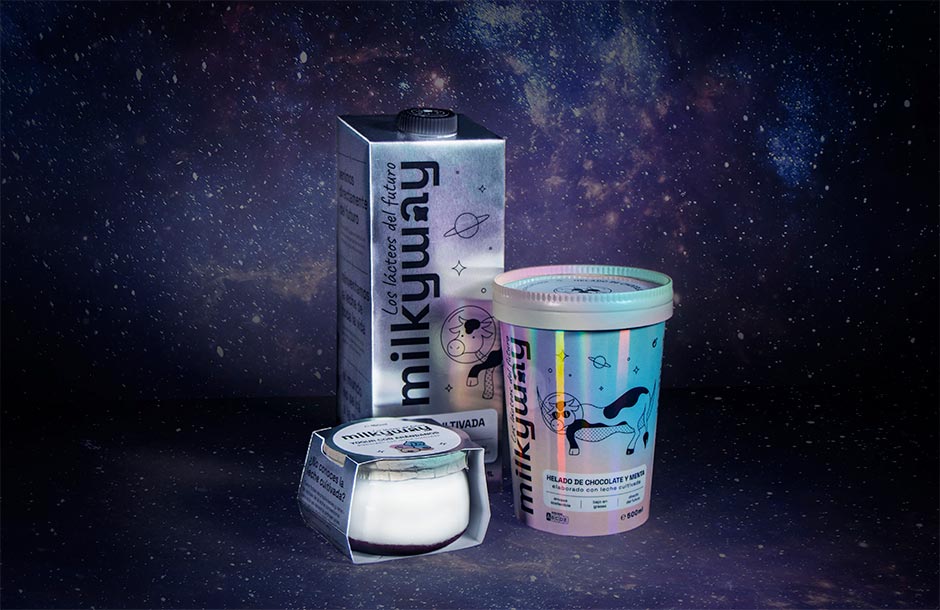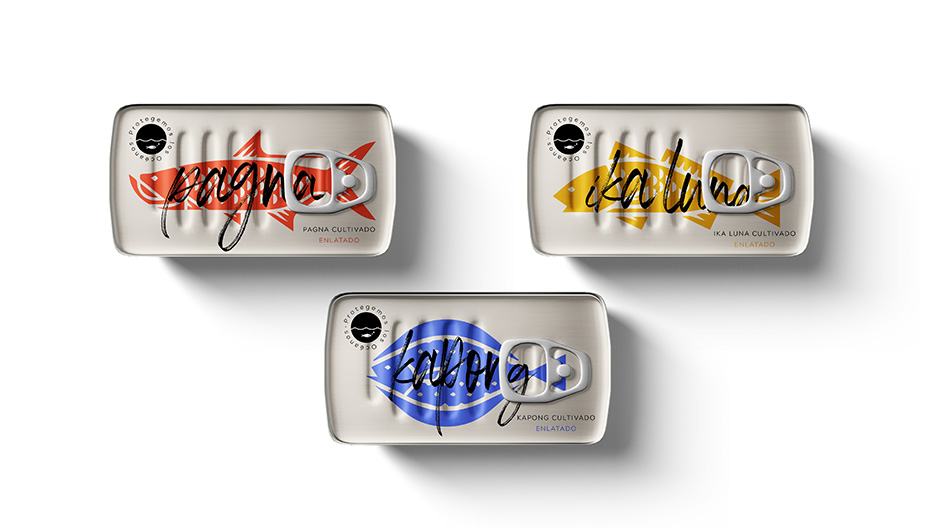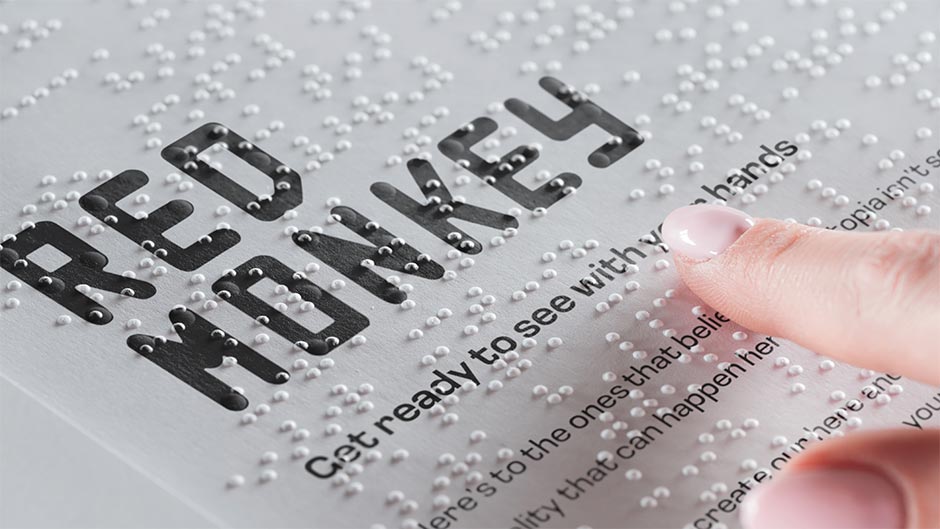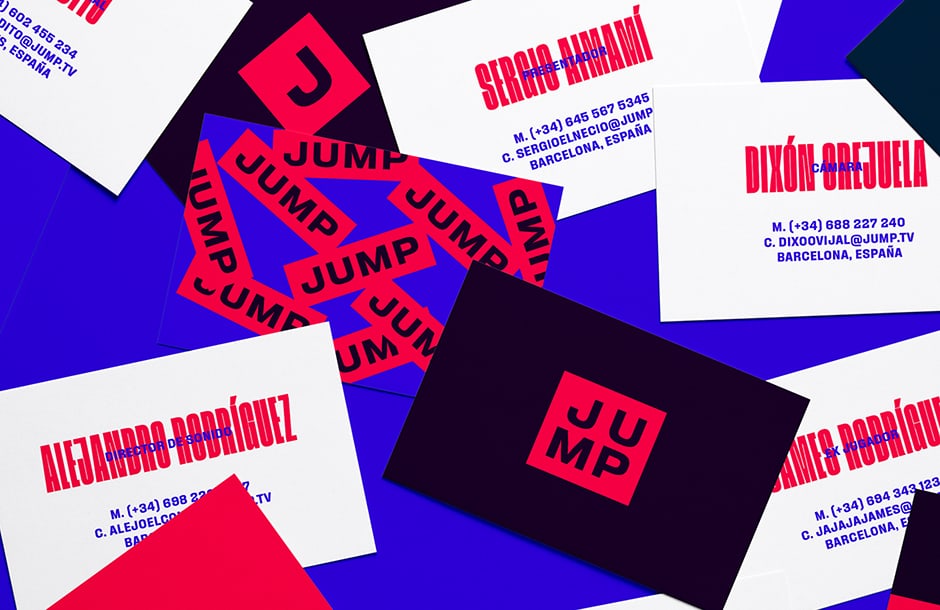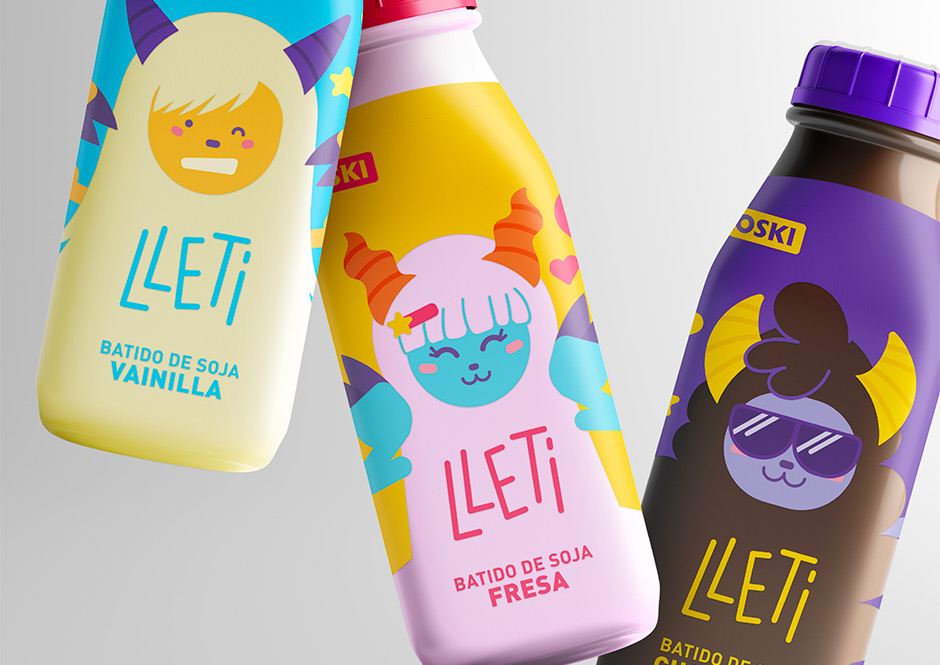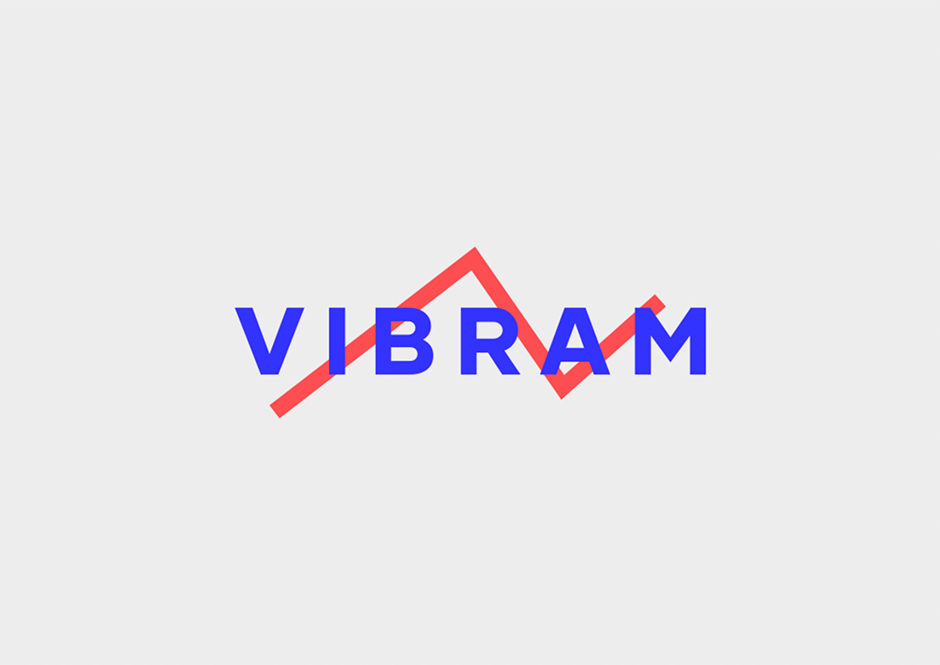
Master in Branding and Packaging Design
Learn to build a powerful brand through the strategic management of the set of elements that make it up: identity, packaging and the online and offline communication.
Description of the curriculum
- Edition: 14th
- Teaching period: from October 2024 to June 2025. Final master's project presentation: June 2025
- Schedule: from Monday to Thursday from 6 p.m. to 9 p.m.
- Modality: on-site
- Language: Spanish
- Price: 9.920 €
- Qualification: Master's Degree in Branding and Packaging Design awarded by the UVic-UCC
- Credits: 60 ECTS
Introduction
The Master’s Degree in Branding and Packaging Design provides theoretical and practical training so that future brand and packaging designers can acquire a holistic vision and specialise in the conceptualisation, creation and design of online and offline brands, as well as the design of packaging that provides unique experiences while reinforcing consumer commitment to their brands of choice.
The master's degree programme combines strategy and research, creative thinking, presentation techniques, visual experimentation and graphic design, sustainability and volume. Theorical and practical training is complemented by workshops to facilitate the application of all the knowledge acquired during the course. This will enable students to acquire specific expertise and a broad vision of branding and packaging design that will allow optimal integration into multi-disciplinary work teams.
The Master's Degree in Branding and Packaging Design is worth 60 ECTS and can be earned by completing the two postgraduate courses worth 30 ECTS each. These postgraduate courses can be taken in the same or different academic years. Additionally, all the postgraduate courses that make up part of a master's degree can be completed independently.
Syllabus
Brand Design
Module 1 - Branding immersion Module 2 - Brand strategy Module 3 - Creative tools for brand design Module 4 - Tools and techniques for effective presentation Module 5 - Visual brand identity and art direction system Module 6 - Brand experience Module 7 - Practical workshops Postgraduate Degree Final Project
Packaging Design
Module 1 - Packaging strategy and management Module 2 - Research and packaging trends Module 3 - Creative tools and art direction for packaging design Module 4 - Technical tools and software for packaging design Module 5 - Ecodesign and sustainable packaging Module 6 - Packaging volume Module 7 - Practical workshops Postgraduate Degree Final Project
Syllabus
Postgraduate degree in Brand Design
Module 1 - Branding immersion
During this introductory module, students will acquire a holistic view of the true significance of brand design, the areas it covers, and the key aspects for its creation and management from a design and strategy perspective. Before embarking on their own design projects, students will gain an understanding of the significance of branding and how to observe the user and context.
- Brands, companies and the business of brand design.
- Understanding the company and the brand: types of companies, map of stakeholders, strategy and objectives, types of brands, positioning, brand history, brand auditing.
- Observing the user and the context: empathy map and user persona, journey map and insights, consumer trends, skills and references benchmark, market and cross-category trends
- The creative process of brand design.
Module 2 - Brand strategy
Branding is concerned with more than just the visual, it also requires thinking, research, and the capacity to synthesise and conceptualise. In a theoretical and practical manner, this module will show students how to understand the purpose of a brand, develop the DNA and the brand idea, and expand them to a brand manifesto. Additionally, the various typologies of brand architecture will also be covered.
- Brand DNA: mission, vision, values, brand purpose, attributes and personality, brand archetypes.
- Brand idea: methodology for the creation of the brand idea, creativity workshop for devising creative territories, conceptualisation tools and brand manifesto.
- Brand architecture: types of brand architecture, creation of scenarios.
Module 3 - Creative tools for brand design
Through theoretical and practical sessions covering the key range of creative tools used to construct branding, students will learn to visualise the brand DNA, conceptualise a brand based on a briefing, and understand the methodology and process behind the creation of a brand name. In addition, students will be exposed to lettering conceived specifically for brand design.
- Brand DNA visualisation: tools for visualising the intangibles of a brand.
- Conceptualisation and visual creativity: how to create impactful visual concepts. Narrative Strategies. Synthesis of the Image. Expressive Resources.
- Lettering: how to develop lettering when designing a brand. Forms, construction and composition.
- Naming: the name and verbal identity of the brand. Naming briefing. Creative strategy, process and techniques of name creation. Selecting a name.
Module 4 - Tools and techniques for effective presentation
During theoretical and practical sessions, students will explore specific aspects of public presentations while bearing in mind the objectives, script, storytelling and staging. They will also pragmatically address how to prepare the materials for a presentation and a branding budget while taking all the stages of the design process into consideration.
- Branding project presentations: objectives, script, storytelling and staging.
- Budgeting a branding project.
- Personal branding: credentials of a brand designer.
Module 5 - Visual brand identity and art direction system
In this module, students will conduct an in-depth examination of each of the visual elements – brand, typography, colour, images, illustration, icons, movement, UX and UI – that are involved in the creation of a brand system. Creative and effective art direction must be able to visualise the brand idea and DNA in impactful and unique way.
- Brand: logotype, imagotype, isotype (symbol), isologo. Variants.
- Art Direction.
- Visual style.
- Typography.
- Colour.
- Images.
- Illustration.
- Icons.
- Movement.
- UX, UI.
Module 6 - Brand experience
In this training block, students will learn to plan, expand and standardise the design of a visual brand system across the various points of contact with the public: brand communication in media and digital media, websites, apps, events, spaces, staff, products, services, packaging, etc.
- Points of contact with the brand.
- Planning of the brand expansion.
- Design of the brand expansion in all contact points.
- Brand manual.
Module 7 - Practical workshops
This module includes five specific workshops, covering everything from the briefing to the creative solution across five distinct areas. Each workshop takes a different sector as a starting point in which the project can be developed. During the sessions, students will develop an understanding of the various competitive environments, enabling them to apply the methodologies, tools and knowledge acquired during the postgraduate course to establish themselves in a practical and experimental manner.
- Brand redesign for a big company.
- Small company brand.
- Innovation brand.
- Branding with lettering.
- Brand in motion, social brand - TFP
Postgraduate Degree Final Project
To conclude the course, each student will develop a final postgraduate project that represents an in-depth exploration of the strategy, conceptualisation and design of an innovative brand that aims to have a positive impact on society. The methodology and creative process that have been imparted throughout the Postgraduate Degree in Brand Design will provide a framework and students will be required to present the results of their efforts before a panel. With assistance from their tutors, students will choose the starting point for their projects for the work that will subsequently be produced.
- Final Project structure.
- Individual and group follow-up tutorials.
Postgraduate degree in Packaging Design
Module 1 - Packaging strategy and management
During this introductory module, students will acquire a holistic view of the true significance of packaging design and its construction process as a key element of brands. They will learn to master the general framework of a packaging project and develop the ability to scale and subsequently develop the creative projects that will be offered to them.
- The creative process of packaging design.
- Brand strategy and experience applied to packaging.
- Benchmark: analysis of the competition.
- Contact points beyond packaging.
Module 2 - Research and packaging trends
Students will gain an appreciation of the period of change that this discipline is currently experiencing and an understanding of its future direction, taking into account the trends we are surrounded by and the new demands of consumers. Packaging designers are and will be key agents of this change.
- Consumer trends.
- Packaging trends.
- Research techniques and methodologies.
- The role of packaging in the digital environment.
Module 3 - Creative tools and art direction for packaging design
Through theoretical and practical sessions on the various key creative tools used in the construction of packaging, students will learn how to create a big idea, master the visualisation of the mood board and develop the art direction for packaging design, with particular emphasis on typography, photography and illustration.
- Big idea: conceptualisation and creativity.
- Mood board: research and creative approach to the project.
- Art direction: from the concept to the visualisation, graphic visual system, illustration and photography.
- Typography: the possibilities for typography in packaging, basic typographic elements, micro- and macro-typography.
- Illustration: the possibilities for illustration in packaging, illustration styles, illustration and concept.
- Photography: the set, lighting, props and composition.
Module 4 - Technical tools and software for packaging design
Through theoretical and practical sessions covering the creative tools used to construct packaging, students will acquire specific knowledge of computer software, as well as an understanding of the possibilities available to them when it comes to final art, materials and finishes.
- Photoshop applied to packaging.
- Illustrator specifically for packaging.
- Final art: how to create and present final packaging art.
- Materials and finishes: constraints of printing systems, substrates and finishes.
- Augmented reality applied to packaging through the Spark tool.
Module 5 - Ecodesign and sustainable packaging
In this module, students will receive an introduction to the world of ecodesign as it applies to packaging and an understanding of the significance of developing the vision, tools and processes required to apply sustainability to packaging design in a holistic manner.
- Sustainability fundamentals, product life cycle and improvement strategies.
- Qualitative environmental analysis of packaging.
- The search for design that incorporates the environmental vector.
- Creativity and conceptualisation: the limitations to finding innovative sustainability-related ideas.
Module 6 - Packaging volume
Students will gain an understanding of the creative process behind a volume design – concept, uses, shapes, materials, textures, colour scheme, etc. – from the initial briefing onwards, while appreciating the context of the market and considering the user experience of the packaging.
- Volume: benchmark from the perspective of volume.
- Usability: research focused on the user and usability of packaging.
- Creativity and conceptualisation: from the idea to the reality of the volume of the packaging.
Module 7 - Practical workshops
Notable professionals will deliver five specific workshops covering everything from the briefing to the creative solution in five different areas. Each workshop will take a different sector as a starting point from which the project can be developed. During the workshops, students will acquire an understanding of the various competitive environments, enabling them to apply the methodologies, tools and knowledge acquired during the postgraduate degree to establish themselves in a practical and experimental manner.
- Packaging for premium cosmetics.
- Convenience food packaging.
- Technology/e-commerce packaging unboxing.
- Experimental packaging.
- Informative packaging.
Postgraduate Degree Final Project
To conclude the course, each student will develop a final postgraduate degree project that represents an in-depth exploration of the strategy, conceptualisation and design of innovative packaging that aims to have a positive impact on society. The methodology and creative process that have been imparted throughout the Postgraduate Degree in Packaging Design will provide a framework and students will be required to present the results of their efforts before a panel. With assistance from their tutors, students will choose the starting point for their projects, selecting the theme and creating the briefing for the work that will subsequently be produced.
- Final Project structure.
- Individual and group follow-up tutorials.
Teachers
Coordinator
Enric Batlle
Creative Director / CEO Batllegroup
Coordinator of the Master’s Degree in Branding and Packaging
Coordinator
Anna Muni
Head of Strategy and Innovation en Batllegroup
Guillem Casino
Technological coaching for graphic design
Markel Cormenzana
Transition Designer.
Estela Ibarz
Diseñadora gráfica, Directora de arte y Diseñadora de tipografía
Andrea Casas
Specialist in naming and textual identity
Cristina Febrer
Journalist, consultant and teacher
Anna Serra
Graphic designer
Juan Fonseca
Design Director at Batllegroup
Olga Morales
Bachelor of Communication Sciences and specialized in Advertising and Public Relations
Gerard Miró
Graphic Designer
Ingrid Toran
Graphic Designer
Clara Pousa
Graphic Designer
David Martín
Bachelor's Degree in Graphic Design
Ivan Castro
Graphic designer and typograph
Philip Stanton
Bachelor's Degree in Fine Arts
Kike Segurola
Bachelor's Degree in Graphic Design
Adriana Escrivá
Especialista en innovación y estrategia mobile.
Xavier Balsa
Degree in Advertising and Public Relations
Esther Martin de Pozuelo
Graphic designer. Final arts and production
Career opportunities
This goal of this postgraduate course is to prepare students for an employment market in which an understanding of brand creation from a holistic perspective is indispensable. Brands are not static; designers who understand how to listen, observe, iterate, test and create a constantly evolving brand are in demand.
- Branding and packaging agencies.
- Companies that manage brands and products and/or perform the design of these elements in-house, be they manufacturing or distribution companies.
- Innovation and digital transformation companies.
- Digital marketing, web design and app companies.
- Studios with creative teams.
- Sustainability and industrial design studios.
- Communication agencies.
Associated company
The Master in Branding and Packaging Design is closely linked to the prestigious communication agency Batllegroup - leader in strategy and innovation and specialised in creating brands, products and services that connect with people who follow the latest trends.
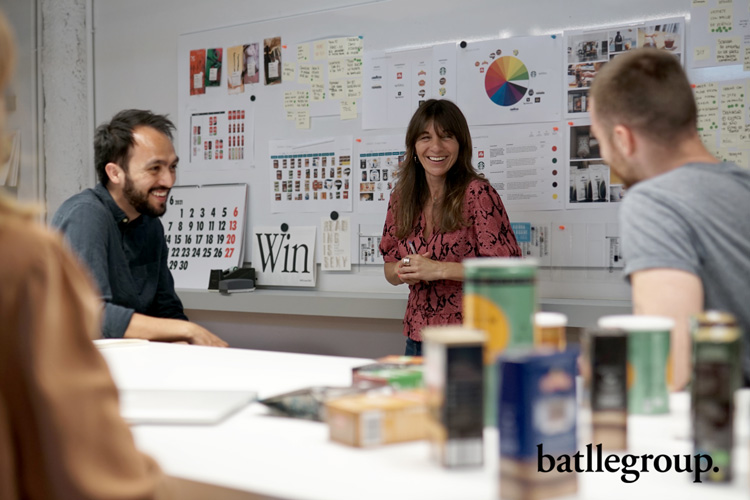
Payment methods
Total cost of the course: 9.920 €
The total cost includes an amount of 200 € concerning the university fees, the administration expenses and the compulsory insurances.
Payment methods
BAU, Arts and Design College of Barcelona offers different terms of payment:
-
Single payment
-
Part payment, in 3 instalments:
-
1st payment, due on enrolment: consisting of 40 % of the fees excluding taxes. An amount of 200 € concerning the university fees is added to the resulting cost
-
2nd payment, due November 5: consisting of 30% of the course excluding taxes
-
3rd payment, due January 5: consisting of 30 % of the course excluding taxes
-
Students and former students of BAU benefit from 10% discount on any of the courses if they have exceeded at least 50% of the credits for a Degree, Higher Degree in Design or the Diploma in Graphic Design; or 100% of the credits for any of the Master’s or Postgraduate degrees.
More information about scholarships and grants.
Information about the registration process.
Academic regulations for Masters and Postgraduate Degrees of BAU.
Download the brochure
Enter your details and we will send you an email with the Master in Branding and Packaging Design brochure.
